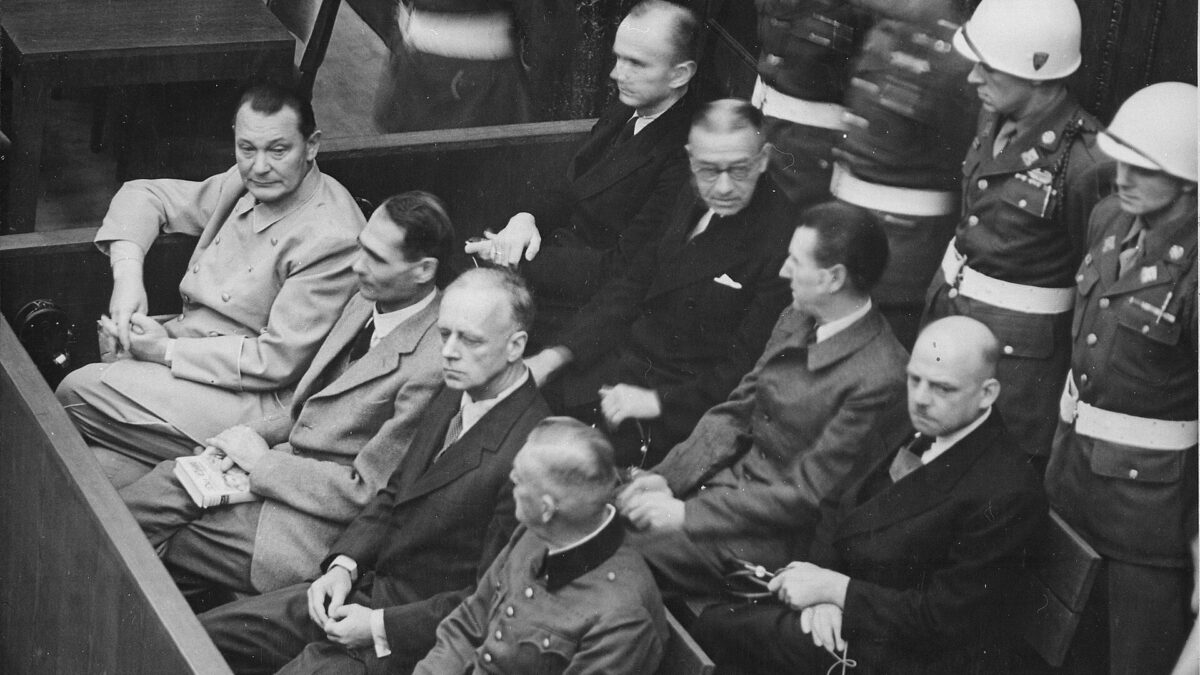It’s always nice when your political opponents make your arguments for you. And in the recent dustup over the $60 billion Ukraine subsidy bill — which in late April passed the House and Senate — that’s precisely what foreign policy hawks have done.
As many beltway wonks have observed, increasing debate in the United States over funding the two-year-old war in Ukraine — not to mention our myriad other military commitments around the globe — has led many U.S. allies to reconsider their own defense spending.
In other words, just the fact that there is no longer a consensus about America’s “policeman of the world” post-Cold War security strategy among the American people and their representatives is persuading our allies to meet the various military commitments we have been demanding of them since Ronald Reagan was president. That should be designated a strategic win, but, as interpreted by our blinkered foreign policy establishment — who have unswervingly endorsed the growing number of U.S. military disasters this century — it is somehow a loss.
Max Boot: Exhibit A in the Incompetent Internationalists Museum
Leading the charge of incoherence in service of our discredited conventional foreign policy is Washington Post columnist and “former neoconservative” Max Boot. In an April 29 op-ed, Boot argues the recent scuttlebutt over the Ukraine funding bill “should give U.S. allies pause about whether they can still count on the United States.”
He notes that “U.S. allies will have to make contingency plans on the assumption that America may no longer be there for them in the future.” He cites as evidence of this shifting paradigm the fact that Canada and the European members of the North Atlantic Treaty Organization raised their defense budgets by 11 percent in 2023. Japan, too, is set to increase defense spending by 16.5 percent this year. He adds that U.S. allies should “do more to strengthen their multilateral defense ties” and “raise defense spending.”
One would think this is good news, given that U.S. administrations since at least when Boot and his family emigrated to the United States during the Carter administration have been failing to persuade our European NATO allies to pick up the slack and increase their defense budgets. But no, in Boot’s eyes, this can only be understood as America “turning its back on the world.”
Indeed, Boot bemoans the end of the decades-long “underlying, bipartisan consensus in U.S. politics that internationalism was in America’s interest.” Now that there’s no such consensus, Boot cries, even when America gets what it wants from its allies.
Boot was an early advocate for the U.S. invasion and occupation of Iraq. In a 2001 article titled “The Case for American Empire,” Boot urged U.S. intervention in Afghanistan and Iraq, writing: “Once Afghanistan has been dealt with, America should turn its attention to Iraq … Once we have deposed Saddam, we can impose an American-led, international regency in Baghdad, to go along with the one in Kabul.”
In 2011, Boot endorsed the NATO intervention in Libya, a disaster still affecting Europe. Thus does the bizarre illogic of Boot’s opinions become manifest: our allies’ increased defense spending makes them less client states dependent on America to protect them, and thus less willing to cooperate with the kinds of disastrous adventurism that has defined U.S. foreign policy the last two decades.
Foreign Policy Gurus Won’t Admit the Obvious
Not that Boot is all that unusual among the Western foreign policy establishment in lamenting that growing U.S. concern over decades of military adventurism and foreign policy overreach is provoking worried responses from Washington’s traditional security partners.
Earlier this year, NATO Secretary-General Jens Stoltenberg conceded to criticism that some NATO members were guilty of underfinancing the coalition’s defense budget, while also noting a record 18 allies were set to meet their military spending goals this year because of fears the United States might no longer fulfill once-presumed security guarantees. “European diplomats and officials said that continuing their upwards spending trajectory was the first of a three-plank Trump containment strategy,” reported the Financial Times.
The Japan Times cited numerous international security experts blaming Trump and a dysfunctional Congress for increased concerns about U.S. security commitments in the Pacific region. “Allies are hedging,” it noted, and then added, arrestingly, “which can be a good thing. Governments are increasing defense spending and diversifying security relationships.”
A March 23 CNN analysis reported: “Europe is trying to fill a US-shaped hole in funding for Ukraine,” as if it is America, and not Ukraine’s immediate neighbors, which needs to be most concerned about Russian aggression in eastern Europe.
A Realist Victory in U.S. Foreign Policy
At a February campaign event, former President Trump recounted a story about an unidentified NATO member. Trump reported telling the NATO member: “You didn’t pay? You’re delinquent? No, I would not protect you. In fact, I would encourage them to do whatever the hell they want. You gotta pay. You gotta pay your bills.”
In a rare exception from establishment hand-wringing over such threats, a March op-ed in Foreign Policy acknowledged that Trump’s “inflammatory comments [about NATO] could have the positive effect of forcing European leaders to contribute more to their continent’s defense.”
This reality frustrates Boot and other foreign policy wonks: the most effective mechanism for persuading our allies in Europe and Asia to take their own security more seriously has been to persuade them that their U.S. big brother may not always come to their rescue. Those are harsh words, especially for nations with whom we have enjoyed strategic partnerships for many decades. Yet it’s the only tactic that has proved effective in a half-century of Washington finger-wagging at NATO and other allies.
In truth, it’s the harsh consequences of post-Cold War neoconservative and liberal foreign policy that necessitates such tough love toward our friends around the globe. Military intervention in Afghanistan, Iraq, Libya, and Syria cost America approximately $8 trillion, resulted in the deaths of about 900,000 people, and displaced more than 30 million people. For decades we foolishly bled our military and budgets, making us weaker and less prepared for a future conflict that threatens our national security.
Thus you would think anything that pushes our allies to do their fair share would be welcomed by the likes of Boot and his fellow travelers. That it has instead provoked criticism of increasingly vocal realism and restraint among conservatives tells you all you need to know about the group-think delusions of our internationalist “experts.”









